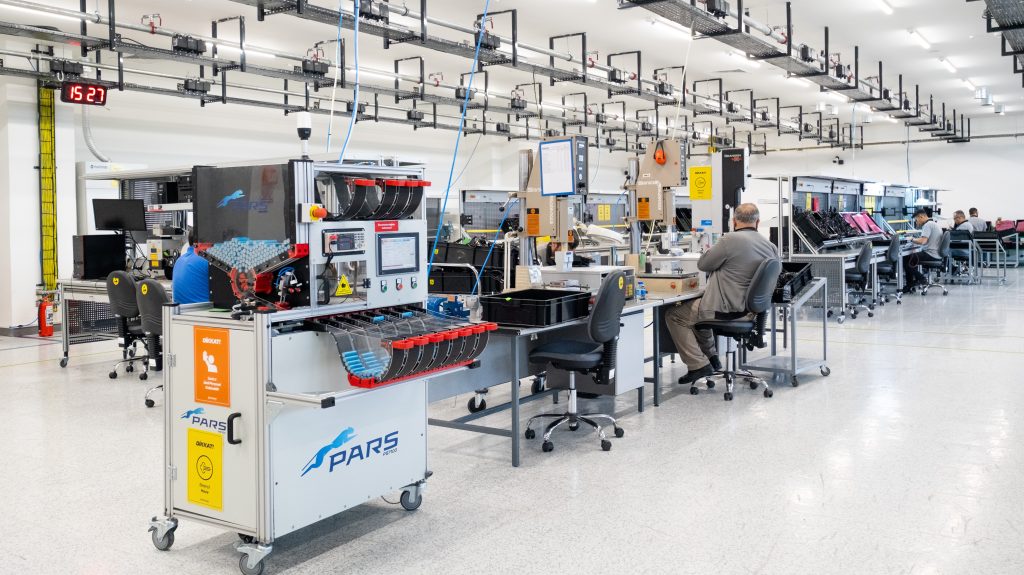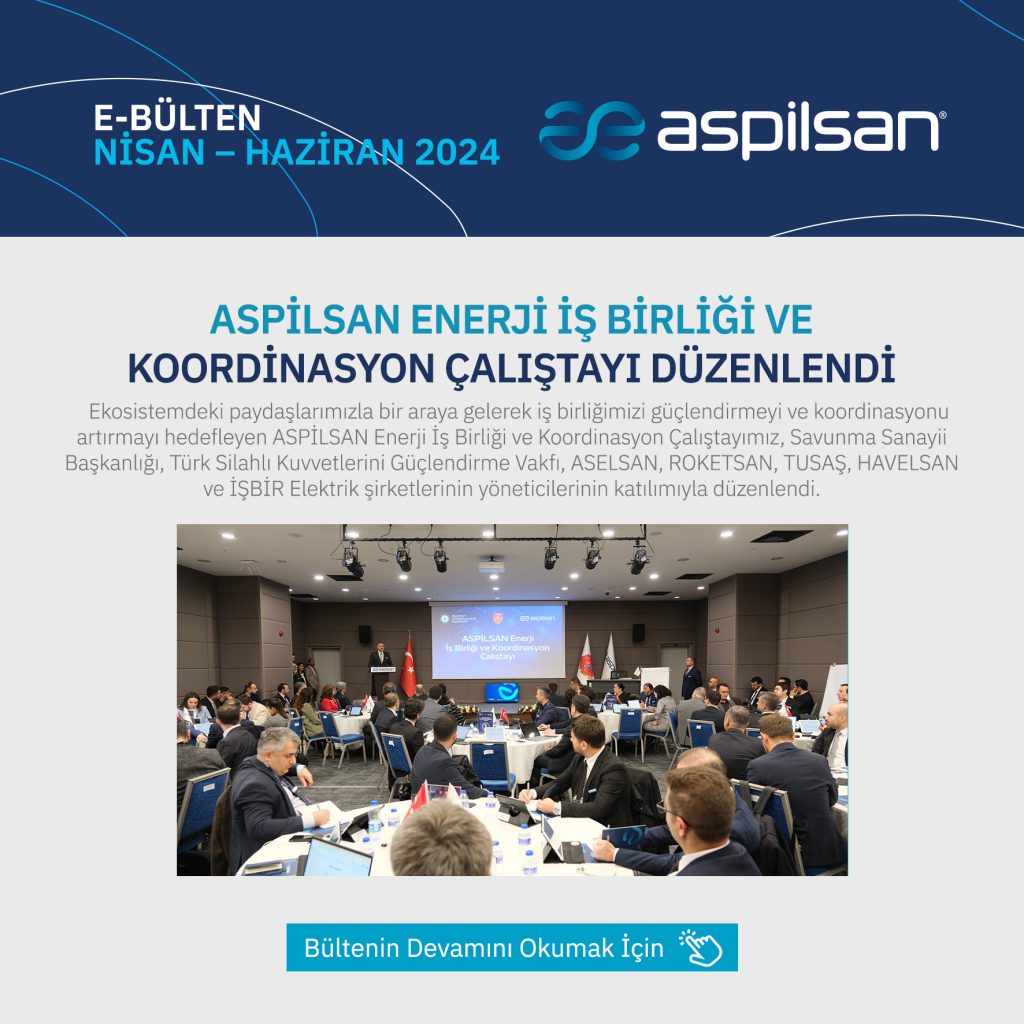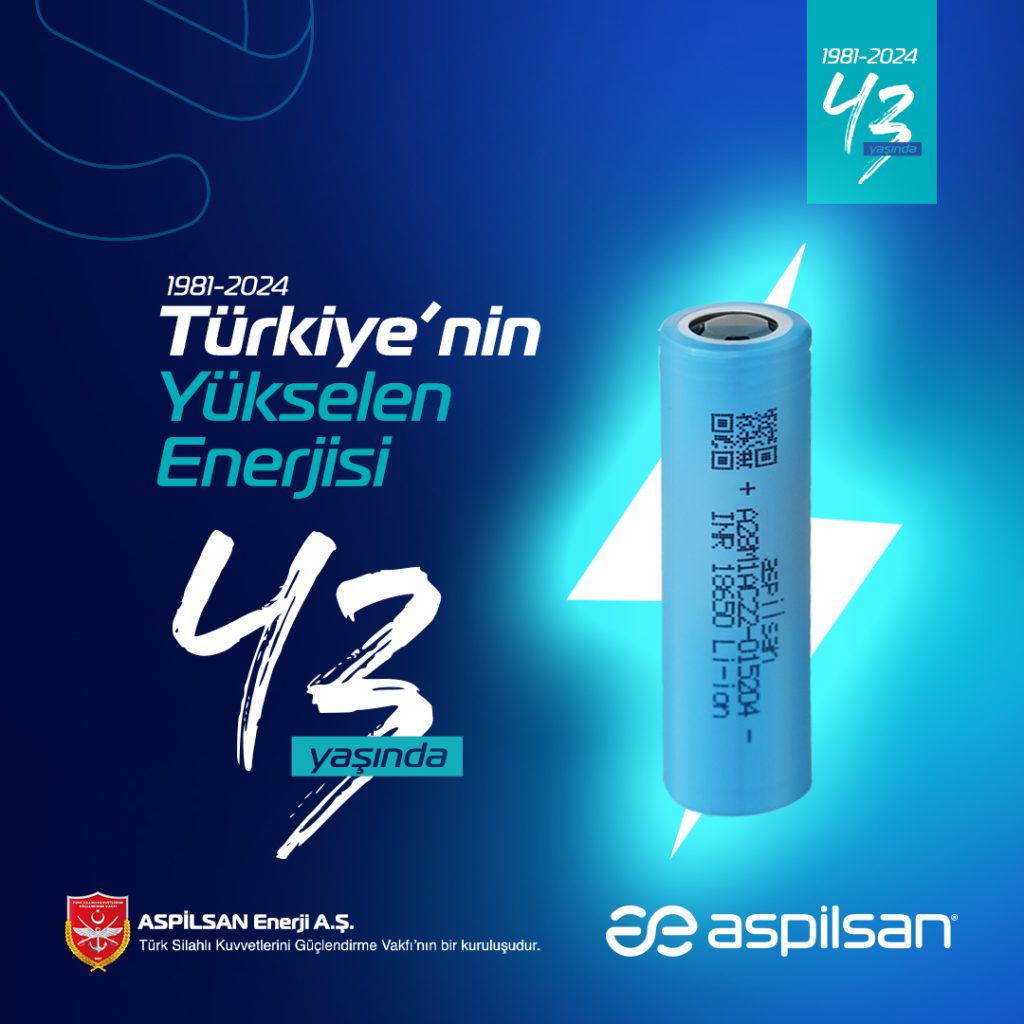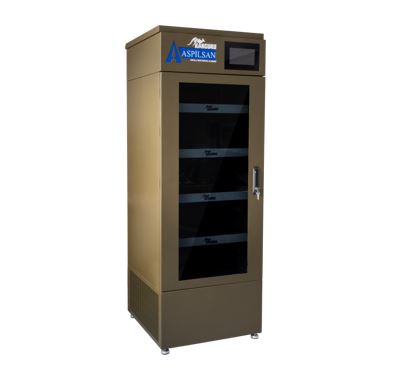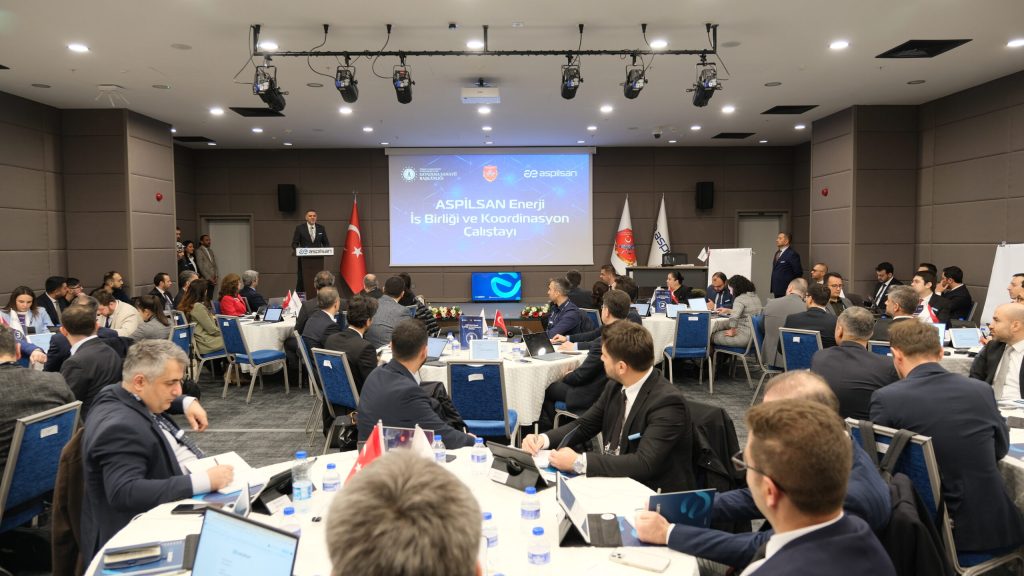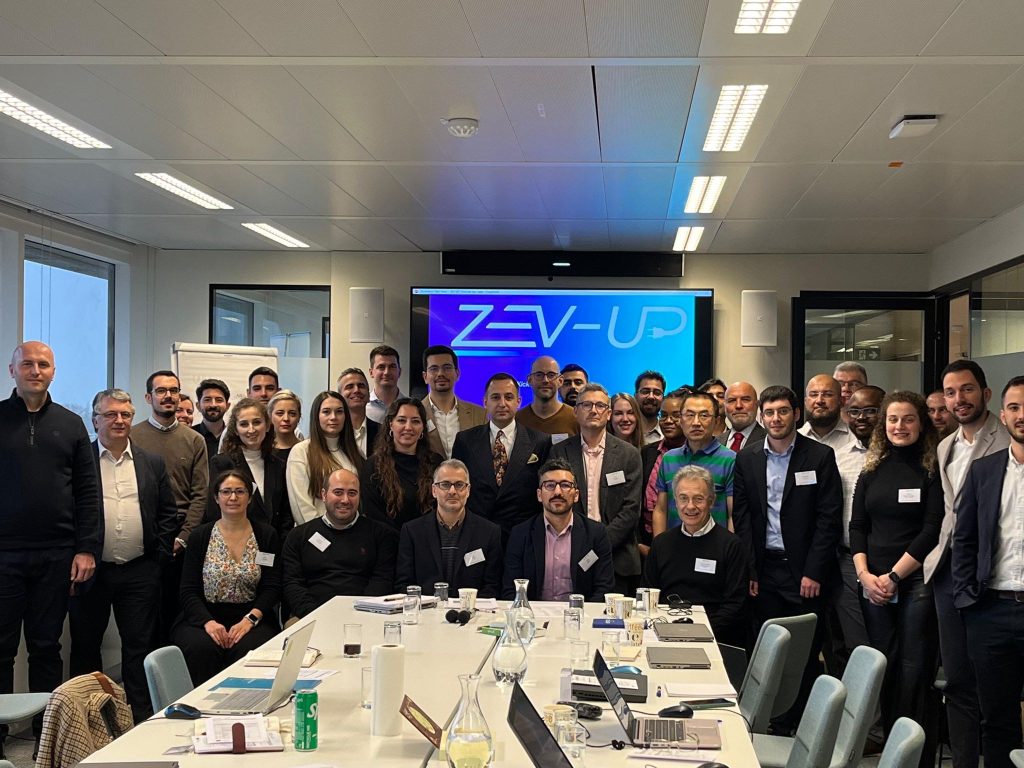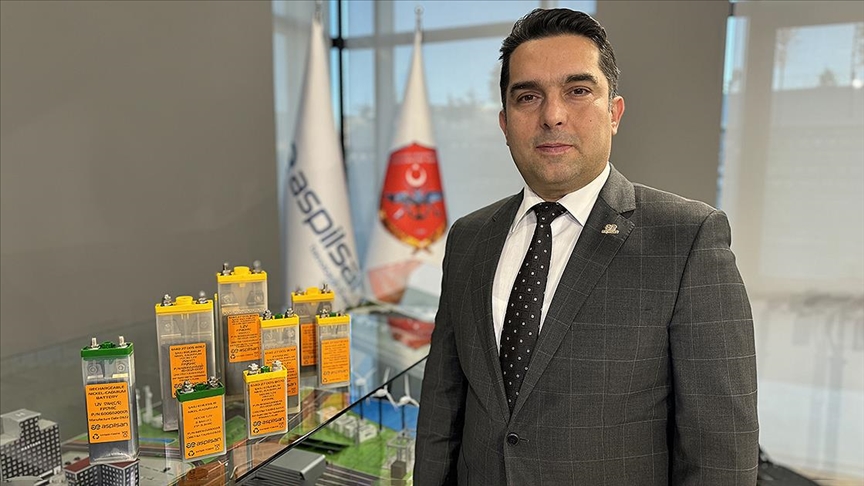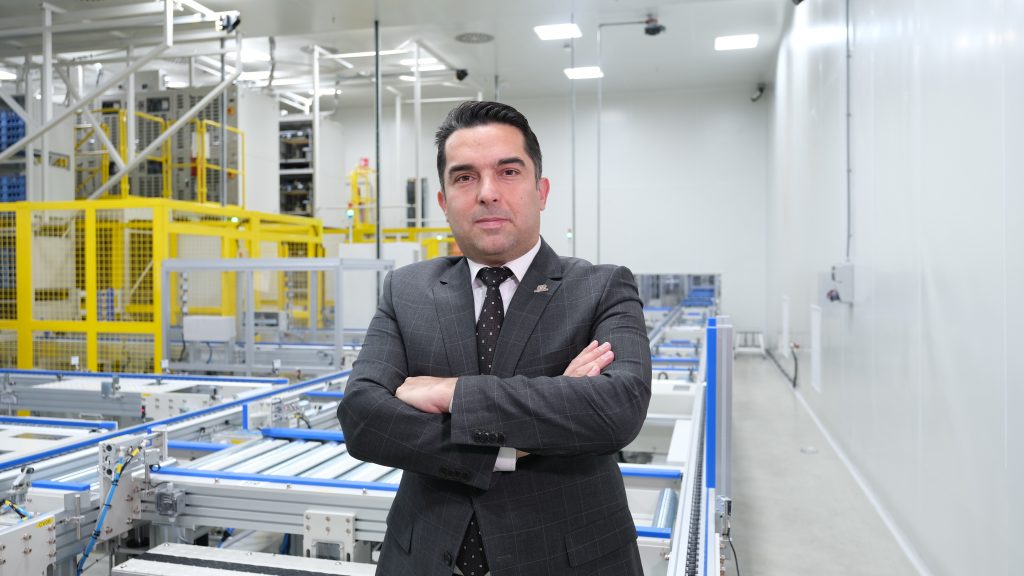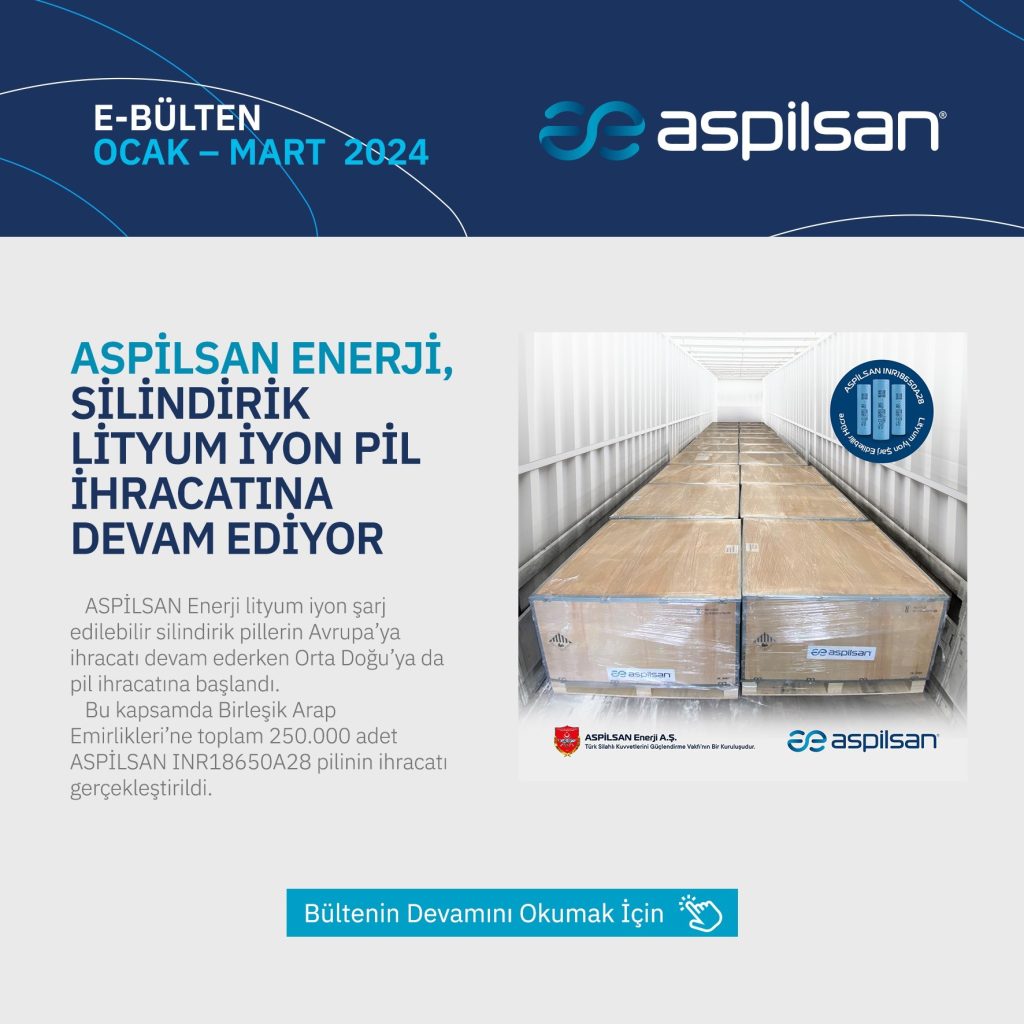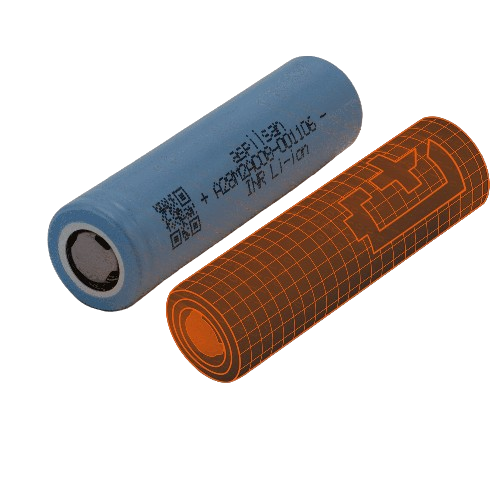The investments made by the Turkish defence industry in domestic battery cells and battery production enabled the emergence of the first examples of some professions in Türkiye.
ASPİLSAN Enerji General Manager Ahmet Turan Özdemir, in his statement to the AA correspondent, said that the company was established in 1981 due to the lessons learned from the Cyprus Peace Operation to meet the energy needs of the army.
Explaining that they first produced rechargeable nickel-cadmium battery cells in 1984, radio batteries in 1985, and aircraft batteries in 1993, Özdemir said that they started R&D activities for battery cell design and production in 2015 and will put their new battery cells into operation. He stated that the factories will mass-produce battery cells in 2022.
Özdemir emphasized that Türkiye has regained the capabilities it had and lost in rechargeable battery cell production with ASPİLSAN in the past, with new technologies.
Pointing out that they are one of the few companies that produce battery cells from raw materials, combine them with electronic cards and software, put them in a case with thermal management and turn them into batteries, Özdemir made the following evaluations:
"This capability is not available everywhere. Just as it is very special for TÜrkiye, many companies in the world do what we do. We are a company that produces batteries and turns them into batteries. This is an important capability. Our facility was previously designing batteries in the Kayseri Organized Industrial Zone. We also had a manufacturing team that produced rail systems, and marine and aviation batteries in nickel-cadmium chemistry. This factory continues there. Battery manufacturing and aviation battery manufacturing continue there. However, over time, we dispersed to Türkiye. We have a hydrogen and fuel cell operating plant in İstanbul. Our R&D team, another R&D team working on aviation batteries in Ankara, another team working on electric vehicle batteries in Ankara, and another team in Kayseri designs batteries that operate at relatively lower voltages, currents and voltages for radio and portable energy systems. We have an R&D team. In addition, two of our factories operate in Kayseri."
Newborn Jobs
Pointing out that they have achieved several firsts in the field of employment in Türkiye with the investments made in battery cell and battery technologies and the facilities established, Özdemir said:
Our company employs Türkiye's first electrode technician, the first operators of the mixer section where we take the raw material and mix it, and the technicians who wrap the electrode and place the battery cell into the case in the assembly section. Our technicians and formation engineers in the formation line were the first people in Türkiye to work in these fields and do these jobs.
"In the ecosystem, we have nurtured our friends, defined professions, and provided initial employment opportunities in our country. Therefore, its contribution to employment is important both in terms of the emergence of new professions in Turkey and in continuing to serve the sector with 330 qualified employees today, with 150 new colleagues in addition to the 180 people employed before 2021 in this factory and other locations. Beyond the numbers, we consider it significant in terms of quality, the jobs we have defined for them, and the new professions we have introduced to our country."
Özdemir emphasized the increasing need for portable energy worldwide, indicating the trend in this direction. He stated that the sector's interest in these professional groups will continue to grow. According to Özdemir, individuals involved in battery design, software development, and technical fields such as mechanical, electronic, and software engineering are needed, along with those specializing in contract management, project management, and legal consultancy, particularly in the defence and energy sectors. He emphasized that these professionals will be in high demand, both initially and increasingly so in the future. As time progresses, there will be more potential for employment opportunities for these individuals. Therefore, it is evident that there will be a greater need for energy-related professions and those working in collaboration with them in the future, and these jobs will receive more attention in the market.
University-Industry Cooperation in Human Resources Training
Ahmet Turan Özdemir pointed out that in the defence industry, especially in specialized areas such as ammunition production, aviation, and space, university or national education curricula may not always adequately train the necessary professional groups. He stated that the sector sometimes resorts to training its employees when needed.
Özdemir stated that the Ministry of Science, Industry, and Technology has initiated a program called "Sector on Campus" to address the diverse needs of the industry. He mentioned that this program has 22 stakeholders, including 11 universities and 11 industrial organizations, with ASPİLSAN being one of them.
Özdemir emphasized their support for the program by stating that they contribute with their engineers to the creation of new curricula, the definition of new courses, and engineering education in areas needed by the industry. He added, "Our Defense Industry Presidency also supports these processes with various structures through the KÖK program and other programs to meet the human resources needs. In this regard, we, individually, also support such programs in coordination with our Defense Industry Presidency. In one way or another, our country is developing the human power needed by the sector with the support of the sector itself. We provide all the assistance we can in this regard without hesitation."

